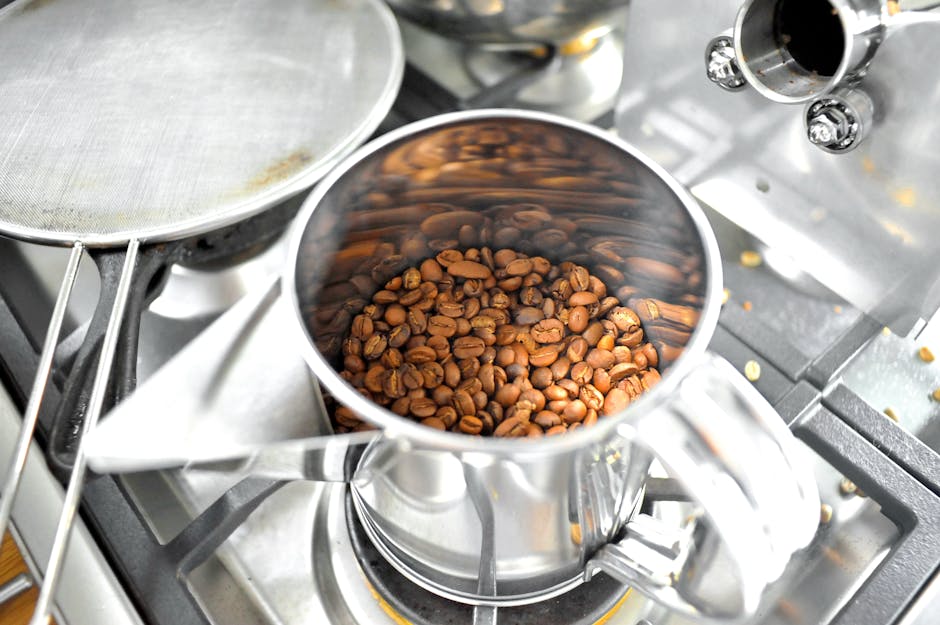How Coffee Became Our Lifeblood
Did you know that over 2 billion cups of coffee are consumed every day around the world? That’s enough to fuel our mornings and keep us awake through the busy afternoons! Coffee isn’t just a drink; it’s a part of our daily routine, culture, and even our identity. But how did this magical bean become such an essential part of our lives? Let’s explore the journey of coffee from humble beginnings to the world’s favorite beverage.
What Makes Coffee So Popular?

First, lets look at why coffee is loved by so many. it’s not just the rich flavor or the warm aroma. Coffee has a unique blend of caffeine, antioxidants, and other compounds that offer health benefits. Here are some reasons why people can’t get enough of it:
- Boost in Energy: Caffeine is a natural stimulant. It helps us feel more awake and alert. That morning cup can make a huge difference!
- Social Connections: Coffee shops are gathering spots. they’re where we catch up with friends, hold meetings, or simply enjoy some quiet time.
- Health Benefits: Studies show that coffee drinkers may have a lower risk of certain diseases, including Parkinson’s and type 2 diabetes.
In short, coffee energizes us, connects us, and even helps our health. No wonder it’s become our lifeblood!
How Did Coffee Origin Start?

The story of coffee begins in Ethiopia in the 9th century. According to legend, a goat herder named Kaldi noticed that his goats became unusually energetic after eating berries from a certain tree. Curious, he tried them himself and discovered a boost in energy.
Kaldis discovery spread. Monks began using the berries to stay awake during long prayers. This practice eventually made it’s way to the Middle East, where coffee houses began to pop up in cities like Istanbul and Cairo.
What Role Did Coffee Play in History?

As coffee spread across the globe, it began to influence cultures and societies. By the 17th century, coffee was making waves in Europe. It was dubbed the drink of the devil by some, while others embraced it’s energizing effects.
- Coffee Houses: These became centers for conversation and commerce. People discussed politics and ideas that shaped history.
- Economic Impact: Coffee cultivation turned into a massive industry. Countries in South America, Africa, and Asia became major producers.
- Revolutionary Fuel: Coffee was even a favorite among revolutionaries! It kept them awake and alert during critical moments in history.
Coffee wasn’t just a drink; it played a key role in shaping societies and even revolutions!
How Did Coffee Become a Global Commodity?

Today, coffee is one of the most traded commodities in the world. But how did it get there? The journey from bean to cup involves many steps:
- Growing: Coffee plants thrive in tropical climates. They need just the right amount of sun and rain.
- Harvesting: Farmers pick the ripe coffee cherries by hand. This is labor-intensive and requires skill.
- Processing: After harvesting, the cherries are processed to extract the beans. This can be done through dry or wet methods.
- Roasting: The green beans are then roasted at varying temperatures for different flavors. This is where the magic happens!
- Brewing: Finally, we brew our coffee using methods like drip, espresso, or French press.
This complex process turns a simple fruit into the beloved beverage we enjoy every day.
Why Is Coffee Culture So Important Today?
In recent years, coffee culture has exploded globally. But what does that mean? Coffee is more than just a drink; it’s an experience. Here are some trends that highlight it’s impact:
- Specialty Coffee: People seek unique flavors from different regions. Single-origin coffee is now very popular.
- Barista Skills: Coffee-making has become an art. Skilled baristas craft exquisite drinks that are visually stunning.
- Home Brewing: Many have turned to brewing their own coffee at home, exploring various techniques and equipment.
Whether in a cafe or at home, coffee culture brings joy and creativity to our lives.
What Are the Future Trends in Coffee?
As we look ahead, coffee continues to evolve. Here are some trends to watch:
- Environmental Sustainability: More consumers are concerned about how coffee is grown. Sustainable and ethical farming practices are becoming the norm.
- Health Conscious Options: With the rise of alternative diets, coffee drinks are becoming more diverse, including options like nitro coffee and cold brews.
- Technology Integration: Smart coffee makers and apps are changing how we brew and enjoy our coffee.
The future of coffee looks bright, with exciting developments on the horizon!
How Can You Enjoy Coffee Mindfully?
With coffee being such a big part of our lives, it’s essential to enjoy it mindfully. Here are some tips:
- Choose Quality: Seek out high-quality beans and support sustainable brands.
- Limit Additives: Enjoy the natural flavors of coffee. Try to minimize sugar and cream.
- Take Your Time: Savor each sip. Make coffee a ritual rather than just a rush.
Mindful coffee drinking can enhance your experience and deepen your appreciation for this beloved beverage.
Conclusion: Coffee, Our Lifeblood
Coffee has traveled a long way from the hills of Ethiopia to our cups today. It energizes our days, fuels conversations, and connects us with each other. As we embrace new trends and sustainability, coffee will only grow in importance. So, the next time you take a sip, remember the journey and enjoy the moment. After all, coffee is not just a drink; it’s a global experience.
To learn more about the health benefits of coffee, check out this article from Healthline: Top Health Benefits of Coffee.
Now, how will you enjoy your next cup of coffee? Cheers to our lifeblood!



